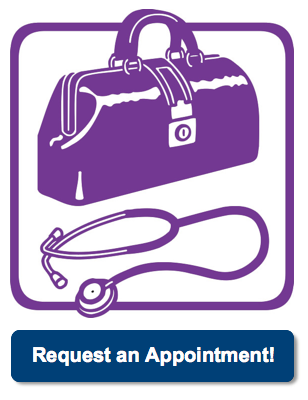
From children to their parents and grandparents, age doesn’t discriminate when it comes to a fear of shots. In fact, per Big Shots Get Shots there are actually six medical terms associated with it, only one of which is considered “abnormal” and even that one isn’t uncommon. The terms and definitions are as follows:
- Aichmophobia: an intense or morbid fear of sharp or pointed objects
- Algophobia: an intense or morbid fear of pain
- Belonephobia: an abnormal fear of sharp pointed objects, especially needles
- Enetophobia: a fear of pins
- Trypanophobia: a fear of injections
- Vaccinophobia: a fear of vaccines and vaccinations
However, getting your shots is a necessary part of life. From Tetanus and the flu to Measles, Mumps and Rubella – it’s very likely that you’ll need a vaccination at some point, so here are some ways you can cope with the concept.
Know that it’s common
The first thing to know about fearing injections is that you’re not alone. According to Katherine Dahlsgaard, PhD, “2%-8% of children and adolescents report full-blown injection phobias.” In addition, Huffington Post Canada reported that, “20 percent of people have some degree of fear of needles and injections, and 20 percent of those with the fear let it keep them from seeking medical treatment.” Finally, according to Jerry Emanuelson, “Between 4 and 10 percent of the population has a form of needle phobia that is biological in origin, and that is unrelated to classic phobias. (In medical environments, the percentage of patients suffering from this genetic type of needle phobia is 3 to 5 percent, but at least twice that number with this genetic condition will never seek medical care under any circumstances.)”
Sometimes, just legitimizing the fear is enough. You’re not alone. Many are afraid of shots, but that shouldn’t get in the way of your proper medical care. Hopefully, knowing that this particular issue is common will allow your more rational side to realize that shots are a necessary part of life.
Understand
Whether you are afflicted with this phobia or you are supporting someone with it, the best approach is to fully understand what you or they are going through. As we mentioned previously, there are several definitions associated with a fear of shots, but only one is considered above and beyond the norm and that is belonephobia.
Mary E. Muscari, PhD, CPNP, APRN-BC describes it as, “Belonephobia is recognized in the Diagnostic and Statistical Manual of Mental Disorders, 4th Edition Text Revision (DSM-IV-TR) as a Specific Phobia(SP), Blood-Injection-Injury Type.[1]The critical feature of an SP is marked and persistent fear of clearly discernible, circumscribed objects or situations, such as needles, animals, heights, elevators, and illness.” While most fear of needles is benign, you may find that you or someone you know has a legitimate phobia. Knowing this is part of the understanding process.
According to Muscari, you can begin to discern if you or another individual is experiencing this issue via any of the following methods:
Medical history:
- Self-report of needle fear, dating from childhood, that the patient recognizes as unreasonable
- Exposure to or anticipation of a needle procedure triggers anxiety response
- Needle procedures are avoided
- Needle fear and avoidance interfere with healthcare, occupational, academic, or social activities or cause marked distress
- Family history of needle phobia in first-degree relative
Clinical assessment (related to needle exposure):
- Decrease in blood pressure, pulse, or both, with or without an initial rise in blood pressure, pulse, or both
- Symptoms of syncope, light-headedness, or vertigo, along with other autonomic symptoms
- Electrocardiogram abnormalities of any type
If you or someone you know is a victim of Belonephobia, you can consider any of the following methods outlined by Muscari, “cognitive behavioral therapy, counseling, distraction, relaxation, or hypnosis.”
The above issue is specific to a smaller group of individuals, but many people fear needles for different reasons (some of which are genetic). According to Needlephobia, there are over three reasons for the fear:
Vasovagal Response – “people have what is known medically as the vasovagal reflex reaction. In ordinary language, they faint (or nearly faint) and occasionally go into convulsions before, during or after a needle procedure. It is a part of what is known as blood-injury-injection phobia. This is a purely biological reaction, probably genetic, and is completely distinct from all other kinds of phobia. It is usually triggered, initially at least, by the sensation (which is not necessarily painful) of a needle entering the body. Later, the same reaction may be triggered by anticipation of a needle procedure or even discussions of needle procedures.”
Classic Phobia – “This results from a early traumatic experience during a medical needle procedure. In the case of needle phobia, it is usually a medical event that occurs between the ages of roughly 3 and 6 years. Due to the carelessness and general thoughtlessness of medical professionals toward young children (in ways that are nearly always unintentional), this type of needle phobic has recently been rising at an astronomical rate.”
Fear of Pain – “The third type of needle phobia is a hypersensitivity to the pain caused by a needle penetrating the body. A needle procedure that the average person can barely feel will cause excruciating pain to these people. This type of needle phobia is rather rare and is suffered by less than 1 percent of the population.”
In addition, it should be noted that Needlephobia pointed out a valid point that some people who fear needles suffer from multiple types of fear.
Pick a method
The fact is, no matter what type of fear you are experiencing, you’ll need a way to get through it, so we’ve compiled a list of helpful hints from The Huffington Post Canada that will make your next procedure more palatable.
Look away – Sometimes fear can stem from actually seeing the needle. Generally if you look away or distract yourself, the shot will be over before you know it!
Think of something positive – When looking away doesn’t work, try imagining something more pleasant. In the Huffington Post Canada’s article, “Dr. Sharma says thinking of a positive memory can also help. Some of his patients imagine being injected with warm water for example, to distract themselves.”
Listen to music – Music a great way to distract yourself from pain. Simply pop in your ear buds and float away while you wait for the shot to be over.
Educate yourself – In particlar when a child fears needles and hasn’t encountered them before it’s because of a misconception. According to Katherine Dahlsgaard, PhD, “Number one is psychoeducation — educating kids about shots. It is incredibly important because most kids only encounter a needle maybe once or twice a year, and they have a lot of misconceptions about shots.
—
If you are still concerned about getting your next shot, bring up the concern with your primary care provider. They can offer you ideas and suggestions on how you can deal with your fear in a functional way.
Are you searching for a dedicated primary care physician? Derry Medical Services is always accepting new patients! Book an appointment below.

